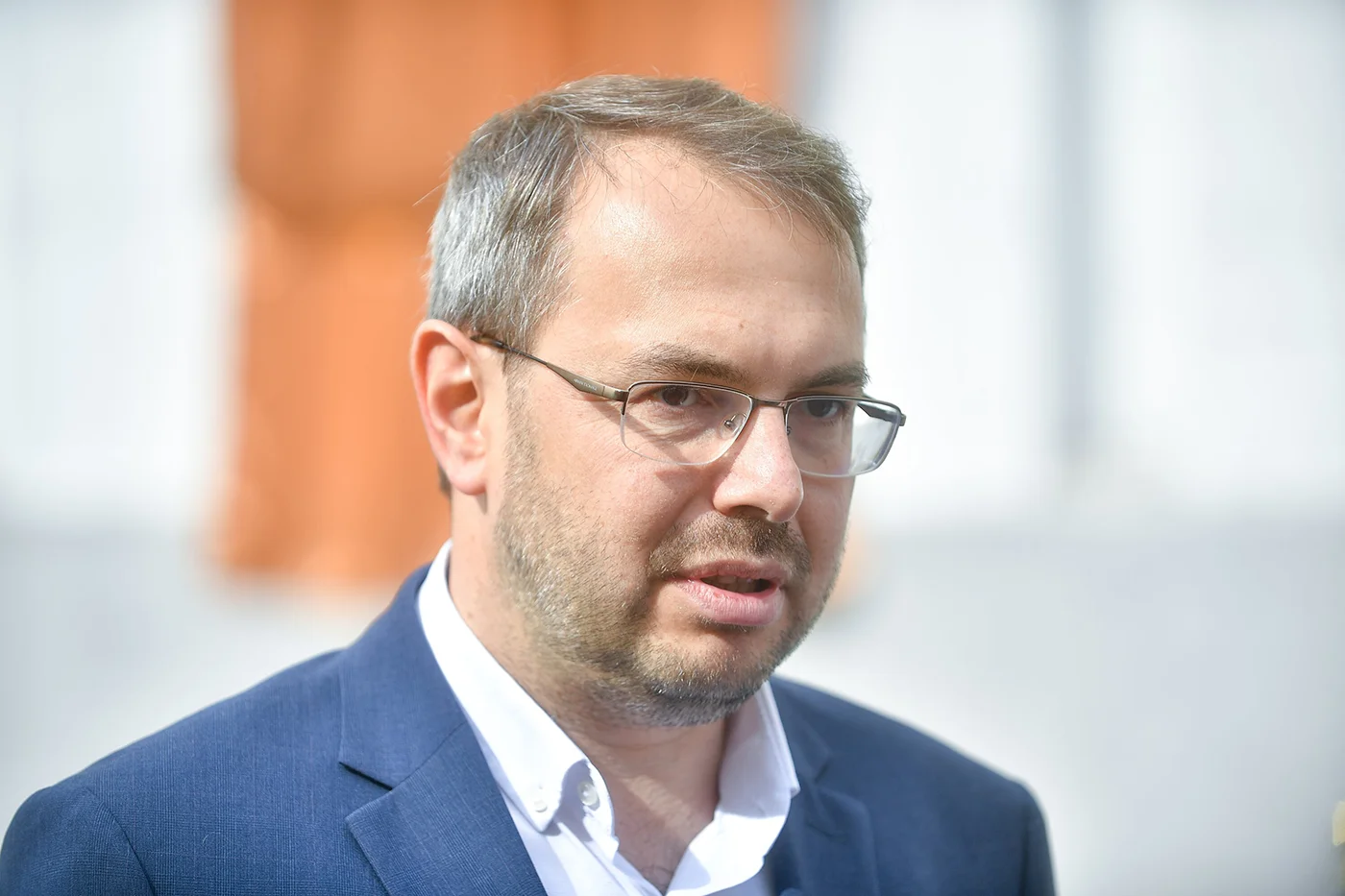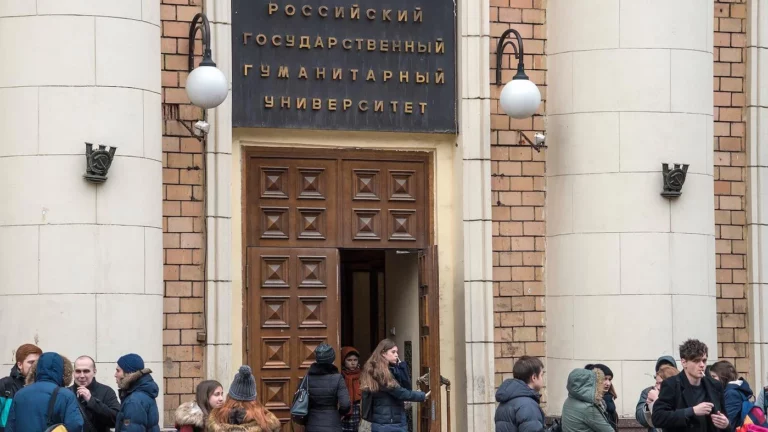The decision to create the Higher Political School named after the philosopher Ivan Ilyin under the leadership of Alexander Dugin at the Russian State University for the Humanities has caused a heated debate among Russian students, scientists and politicians. About the history of the creation of the center, the initiative group of opponents of the Higher Political School and the public resonance that the controversy around the new structure of the RSUH has caused — in the material of RTVI.
Creation of the VPS
The Academic Council of the Russian State University for the Humanities made a decision to establish the Ilyin Higher Political School on June 27, 2023. The regulations on the HPS were approved by the order of the Russian State University for the Humanities on July 4, 2023.
"The VPS is directly subordinate to the Rector of the Russian State University for the Humanities. The VPS is headed by a director who is appointed and dismissed from his position by an order of the Russian State University for the Humanities <…>", - the director of the VPS is responsible for the activities of the VPS," the text of the document says.

Deputy Minister of Education and Science of Russia Konstantin Mogilevsky
Sergey Kiselev / Agency "Moscow"
In November 2023, Deputy Minister of Education and Science of Russia Konstantin Mogilevsky, Rector of the Russian State University for the Humanities Alexander Bezborodov and philosopher Alexander Dugin announced the creation of the Ilyin Higher Political School during the 25th World Russian People's Council.
"The Ivan Ilyin Higher Political School was created at the Russian State University for the Humanities, which, among other things, is intended to direct the activities of vice-rectors for educational work in the right direction. On November 27, at a meeting of the educational section of the jubilee XXV World Russian People's Council, the activities of the Higher Political School (sic!) were announced by Deputy Minister of Education and Science of Russia Konstantin Mogilevsky, Rector of the Russian State University for the Humanities Alexander Bezborodov and the head of the Higher Political School Alexander Dugin," wrote Mikhail Tyurenkov, head of the ideological department of the Tsargrad TV channel, about this event in his Telegram channel.
In a conversation with Kommersant, Bezborodov said that Dugin gave the center its name. The rector of the Russian State University for the Humanities refused to answer RTVI's question about who came up with the initiative to invite Dugin to the post of head of the center, and called for reference to the university's official website.
"RGGU vs. Ilyin's school"
On April 11 , a group called “RGGU vs. Ilyin’s School” was created on the social network VKontakte (as of the evening of April 26, it has 3,374 members. — RTVI note) . The next day, a petition against the creation of the Ilyin Scientific Center appeared on the Change.org website . Its authors are listed as “RGGU students.” At the time of writing, the petition had collected more than 27,000 signatures.
“We, students of the Russian State University for the Humanities (RSUH) and concerned citizens, express our sincere indignation and outrage in connection with the creation of an educational and scientific center named after the ultra-right philosopher Ivan Ilyin,” the text of the petition reads.
In addition, the group's activists began distributing their leaflets at the Russian State University for the Humanities. They later reported that the university administration had called in several students who had posted the leaflets, who had been found using video camera footage, for a conversation.
The activists also published a video with a fragment of Dugin's speech at a meeting of the academic council, where the philosopher expressed gratitude for the idea of opening a new educational center based at the Russian State University for the Humanities. He named the center's main task as improving the qualifications of vice-rectors who are engaged in ideological work.
“Alexander Gelyevich stated that his tenure as leader was not just a private initiative, but was promoted by the will “from above,” the group’s authors reported.
At the time of writing, representatives of the organizing group had not responded to RTVI's request for comment.
Public response
The initiative group was supported by Deputy Chairman of the State Duma Vladislav Davankov, State Duma deputies from the Communist Party of the Russian Federation Denis Parfenov, Oleg Smolin, Vladimir Isakov, Anzhelika Glazkova and Dmitry Novikov, historians Alexander Shubin, Klim Zhukov, Nikolai Platoshkin, Leonid Dobrokhotov, Pavel Kudyukin and Yegor Yakovlev, political observer Konstantin Semin, DPR Ministry of Defense Colonel Eldar Khasanov, bloggers Dmitry Puchkov, Evgeny Bazhenov and others.
Rector of the Russian State University for the Humanities Alexander Bezborodov told Gazeta.ru on April 15 that the university students have no connection to the initiative group. He also stated that the authors of the petition against the creation of the center are acting in the interests of "Ukrainian agents."
Bezborodov confirmed to Kommersant that the university administration demanded an explanation from the students who distributed the initiative group’s leaflets, since the internal regulations of the RSUH “prohibit posting announcements on a pole.”
On April 16, Alexander Dugin published a message on his Telegram channel in which he stated that the center’s activities would not affect the university’s students.
"Students of the Russian State University for the Humanities (I think, unfortunately for them) are not affected by the Ilyin Higher School of Political Science at all. We are talking about continuing education courses for vice-rectors for educational work at universities and about revising the paradigms of humanitarian knowledge in the context of a direct clash between Russian civilization and Western civilization, and the corresponding value systems - traditional and non-traditional. There is no talk of any ideology, and the creators of the Higher School of Political Science treat the Soviet period with respect and understanding, especially in matters of state building and sovereignty," he wrote .
On April 20, State Duma Speaker Vyacheslav Volodin called on his Telegram channel not to turn the discussion around the VPS into a political scandal.
"I have said it many times, and I will repeat it now: it is impossible to defeat our country from the outside. The danger arises when our society allows internal strife. That is why Russia's enemies are trying to split us from within. We must not allow this. It is important not only to stop such attempts, but also to be wiser ourselves: not to allow a destructive agenda and artificial contradictions to be imposed on us," he wrote.
A meeting of representatives of other universities, whose students also spoke out against naming the Higher Party School after Ilyin, was held on April 21 in St. Petersburg. The event was attended by representatives of St. Petersburg State University, RANEPA, HSE, ITMO, BSTU, Peter the Great St. Petersburg Polytechnic University, Lesgaft National State University, State University of Maritime and River Fleet, Bonch-Bruevich St. Petersburg State University of Telecommunications, Russian State University of Printing and Mass Communications, St. Petersburg State University of Economics, Russian State Pedagogical University, and Pushkin Leningrad State University.
On the same day, the host of the Vesti Nedeli program, Dmitry Kiselev, touched upon the conflict around the VPS . On air, he expressed confidence that "certain activists" began attacking the educational center, involving students in their action, "at the instigation of coordinated publications in the West." The TV host also called on the parties to the discussion "not to squabble."
Meeting with the rector
On the afternoon of April 19, representatives of the initiative group reported that the RSUH management had published an announcement about a meeting between the rector and students in the history department group, but after 15 minutes the announcement of the event was removed, and the meeting itself was switched to a “closed format by appointment.”
"We demand not an 'educational conversation', but an open discussion involving an initiative group, all willing students, and an independent moderator. Otherwise, the dialogue will turn into a moralizing monologue," they wrote.
After meeting with the rector, representatives of the group reported that “the university administration said directly: we will not be able to achieve the renaming with the help of students alone.”
Who is part of the initiative group?

Daria Bagina / @darya.bagina / VKontakte
On April 16 , the Rabkor website published an interview with the "public face of the campaign" Darya Bagina, the first secretary of the Moscow City Committee of the Leninist Communist Youth Union. The CPRF website states that since 2017, the girl has held the position of assistant to State Duma deputy Denis Parfenov.
"In the student and teaching environment, there were many questions about the new name of the Higher Political School back in the summer of 2023, but then the administration shamefully deleted all posts about it from its official sources. Probably, such a reaction lulled the public's vigilance a little, but the latest news about the appointment of Alexander Dugin as the head of the Higher Political School put an end to the question of what this school will be. Students from various leftist organizations in Russia came up with the idea of trying to draw attention to this issue through a public page on VKontakte and a petition," she said.
She also admitted that the rector of the RSUH was put in an awkward situation because of what happened, but noted that the initiative group was acting independently. Bagina called the statements about the "Ukrainian trace" and "Western agents" "disingenuous", since the university's management officially acknowledged that the leaflets were posted by RSUH students.
A video interview with Bagina and former RSUH student, member of the Moscow City Committee of the Young Communist League Bureau Olga Serikova, who also joined the initiative group, was published on the Rabkor YouTube channel on April 18. Serikova spoke about the situation around the VPS at a round table of the Moscow City Duma, an excerpt from her speech was published on the initiative group's Telegram channel.
After attempts to discredit the action, the initiative group published photographs and names of four second-year students of the Russian State University for the Humanities who were part of the organizing committee: Stanislav Stozhek, Timofey Lazarev, Egor Mukhin and Vasily Povalyaev.
The structure of the initiative group included :
- strategic department;
- historical department;
- media department;
- legal department;
- propaganda department;
- Department of Stamps.
Start of work of the VPS

Chairman of the Board of Directors of the Tsargrad Group of Companies Konstantin Malofeev
Alexey Belkin / Business Online / TASS
The owner of the Tsargrad TV channel, Konstantin Malofeev, announced the start of the first session of the VPS additional professional education program in his Telegram channel on April 22. According to him, more than 70 vice-rectors for educational work from leading Russian universities became students of the course "Civilizational Identity of Russia and Educational Work in Higher Education".
"The introductory lectures of this course were given by Alexander Gelievich Dugin and me. On two meaning-forming, basic topics - "Empire: Historical Continuity of Russian Civilization" and "Russian Identity: Philosophy and History," he wrote.
Representatives of the initiative group also commented on the start of the work of the VPS.
"They are taught how to "educate" us, students. Let us recall: the head of the VPS, Aleksandr Dugin, assured that the center has no relation to students. In fact, this applies to students not only of our university," they said.
At the same time, activists noted that they did not find any methodological materials for this course on the website of the educational and scientific center.
